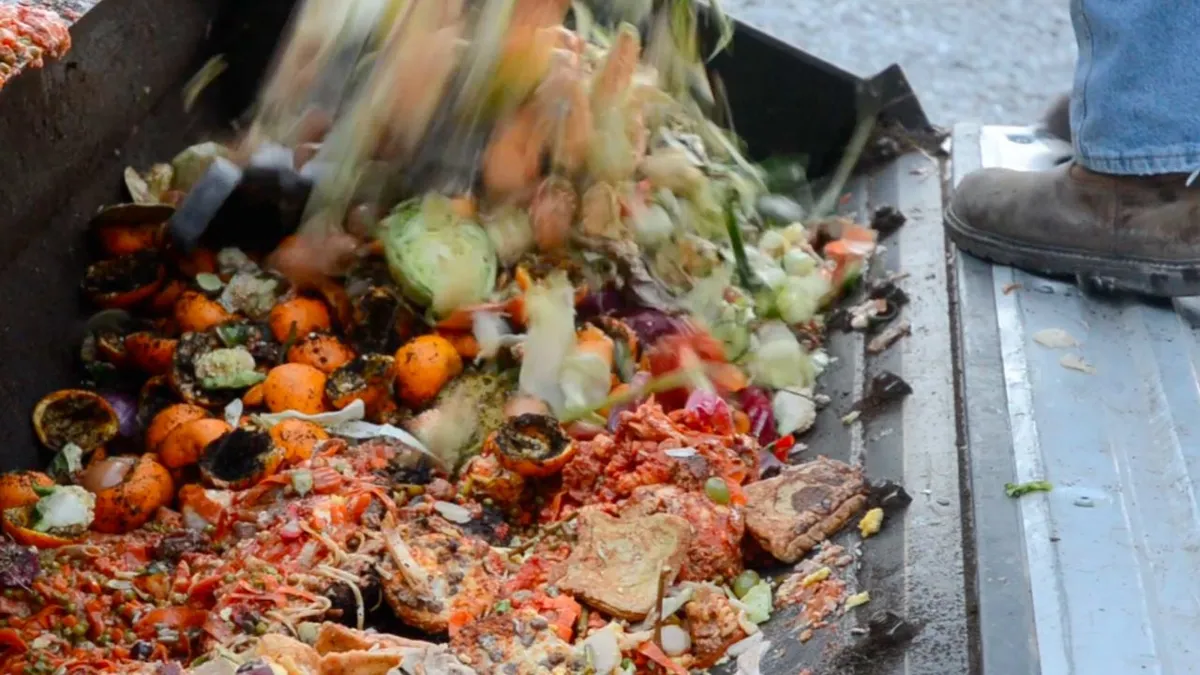Dive Brief:
- Vermont's state legislature recently passed an amendment to the 2012 Universal Recycling Law which will give commercial haulers one extra year to begin accepting food scraps and organic material, as reported by the Valley News.
- Haulers were originally required to begin offering food scrap collection by July 1, 2017. Some small companies, particularly in more rural areas, said this presented an undue burden. The Vermont League of Cities and Towns had been advocating to fully eliminate the requirement.
- Yet the leaders of multiple solid waste management districts in the state pushed back on any delay, saying that haulers could recoup investment costs by charging more for collection service. Multiple organics processing companies and commercial haulers that have already made the necessary investments also resisted, saying this would put them at a disadvantage while the rest of the local industry catches up.
Dive Insight:
Vermont's recycling law has set some of the most ambitious state diversion plans in the country. In addition to expanding requirements for traditional curbside recycling, the law has put Vermont on a path to ban food scraps from landfills entirely by July 2020. Commercial diversion requirements are currently being phased in, transfer stations and drop-off sites must begin accepting food scraps in July of this year and eventually all residents are expected to have curbside collection access.
These policies have already led to an increase in Vermont's diversion rate and the state's Department of Environmental Conservation sees potential for much more progress within the next five years. So far this policy has also spurred an estimated 40% increase in food donations, which aligns with the generally accepted hierarchy that prioritizes recovery over recycling for organic material.
Though solutions are still needed for inedible material, which is where the commercial haulers come in. Certain companies have delayed investing in the necessary equipment for a variety of reasons, but even some of the ones that have already done it see potential challenges in such a rural state. During a recent interview with Waste Dive, the CEO of Vermont-based Casella Waste Systems said he agrees with the law's intent but thinks changes are necessary to recognize the cost factors involved with collecting organics from low density areas.
This one-year extension will buy haulers more time, but doesn't necessarily answer that overriding concern. While other states with organics diversion policies may not have as many of the same challenges with population density, they have all faced questions about the time it takes to get processing infrastructure in place. Massachusetts is often hailed for its commercial organics diversion mandate, but still faces processing capacity needs. Whereas other states such as Maryland have chosen to take a more cautious approach by studying the current capacity and potential for expanding it before enacting any type of diversion mandate.















